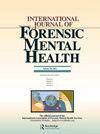A Description of a Māori, Minimum Secure, Forensic Mental Health Unit: A Step toward Equity
IF 0.9
4区 医学
Q3 CRIMINOLOGY & PENOLOGY
International Journal of Forensic Mental Health
Pub Date : 2023-01-17
DOI:10.1080/14999013.2023.2167892
引用次数: 1
Abstract
Abstract Indigenous people have a right to culturally responsive secure inpatient forensic mental health services (FMHS). Yet, there is a paucity of literature highlighting such facilities. This study aims to provide an exemplar of a culturally responsive Māori minimum secure unit for the indigenous people (Māori) of Aotearoa (New Zealand). A Māori research approach (Kaupapa Māori research) was used to highlight the voice of tāngata whai i te ora (service users), their whānau (family), and Māori kaimahi (staff), to describe life in this service. Personal recovery-oriented care was evident emphasizing developing a sense of cultural identity. This approach was attached to a focus on collective identity to enable people to gain skills to thrive within their whānau, once living in the community. This was achieved through a combination of embedding Māori values and practices into daily life, coupled with a blending of culturally specific and evidence-based programmes. Despite the significant gains demonstrated through the development of this culturally responsive unit, challenges to progress exist. Māori leadership to the unit has been eroded, but those interviewed expressed resolve to navigate a solution. This exemplar provides an international impetus for cultural transformation to meet the needs of indigenous peoples in FMHS.一个毛利人、最低安全、法医精神卫生单位的描述:迈向公平的一步
土著人有权获得符合文化要求的、安全的住院法医精神卫生服务。然而,关于这些设施的文献很少。本研究的目的是为奥特罗阿(新西兰)土著人民(Māori)提供一个对文化有反应的Māori最低保障单位的范例。使用Māori研究方法(Kaupapa Māori研究)来突出tāngata whai i te ora(服务用户),他们的whānau(家庭)和Māori kaimahi(工作人员)的声音,以描述这项服务中的生活。以个人康复为导向的护理显然强调培养一种文化认同感。这种方法注重集体认同,使人们能够获得技能,在他们的whānau中茁壮成长,一旦生活在社区中。这是通过将Māori的价值观和实践融入日常生活,再加上结合特定文化和循证方案来实现的。尽管通过发展这个对文化有反应的单位取得了重大进展,但仍存在阻碍进展的挑战。Māori对该单位的领导已经受到侵蚀,但受访者表示决心找到解决办法。这一范例为文化转型提供了国际动力,以满足FMHS中土著人民的需要。
本文章由计算机程序翻译,如有差异,请以英文原文为准。
求助全文
约1分钟内获得全文
求助全文

 求助内容:
求助内容: 应助结果提醒方式:
应助结果提醒方式:


